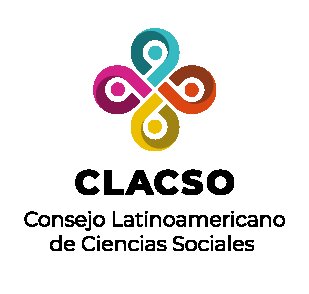Authors
Abstract
Abstract: This article presents the findings of the study “Meaning and significance of the Reconceptualization Movement of Social Work in academic units of at Universidad de Caldas and Universidad Nacional”, carried out in the cities of Manizales and Bogotá respectively, and located in the central region of Colombia. The research was conducted using the qualitative perspective, with a hermeneutic design, allowing the rebuilding of the Reconceptualization Movement, assigning primacy to the voices of students and teachers who were linked to academic units in Universidad National and Universidad de Caldas, in the period between 1968 and 1975, when the phenomenon in question was at its peak. The questions that guided the research were: What meanings have built students and teachers participating in the Reconceptualization Movement, about this historic moment of Social Work?, -considering that comprehensions, which can complement the way the movement has been conceived in the professional and academic environments, have been organized. What were theories and methodologies from which professional education was guided during the Movement?- in order to place the epistemic perspectives from which the Latin American social reality from Social Work was addressed. And finally, which were the educational purposes academic investigative units pursued during the Movement? - to identify the professional profile that wanted to be formed, taking into account the historical and social context that was manifested. Regarding the exposed above, the research supports that the Reconceptualization Movement was a heterogeneous phenomenon which integrated professional education, theories and methodologies from dialectical materialism, without neglecting the classical orientation of Social Work, confluent with handout mentality logic in which professional practice was based on the emerging welfare state. Hence, the Movement amalgamates different conceptions of the professional, product of ideology-based and polarized discussions in the different scenarios in which education was taking place, and the professional exercise at the state, social and community level. The structure of the article included three fundamental elements tothe study of the Reconceptualization movement in professional education scenarios: the first concerning the Colombian historical and social context in which it emerged and developed;the second is the implications it had on professional training, considering that the academic units sampled in the study had an important impact on the part of the Movement, and lastly the final considerations to continue the reflection about the history of Social Work at the local and national level.
References
De Robertis, C. (2011). Herman C. Kruse: Un reconceptualizador del servicio social. Buenos Aires: Lumen.
Gartner, L. (1998). Los Currículos del Programa de Trabajo Social 1968-1998. Eleuthera, Series de Trabajo Social.
Gartner, L; Cifuentes, R. (2006). La primera escuela de servicio social colombiana. En: Colombia Trabajo social Universidad Nacional, v.8 fasc.N/A p.9 – 26. Recuperado de: http://www.revistas.unal.edu.co/index.php/tsocial/article/view/8493
Hoyos, G; Vargas, German. (1996). La teoría de la acción comunicativa como nuevo paradigma de investigación en ciencias sociales: las ciencias de la discusión. ARFO editores e Impresores Ltda.
Recuperado de: contrasentido.net/wp-content/uploads/2007/08/modulo2.pdf Miranda, M. (2010). De la claridad a la ciencia: Trabajo Social: la construcción de una disciplina científica. Buenos Aires: Amorrortu.
Leal, G; Malagon, E. (2006). Historia del trabajo social en Colombia: De la doctrina social de la iglesia al pensamiento complejo. Trabajo social, Universidad Nacional v. , p.407 – 518.
Recuperado de: aprendeenlinea.udea.edu.co/lms/moodle/mod/resource/view.php?...Parra, G. (s.f.). Aportes al análisis del Movimiento de Reconceptualización en América Latina.
Recuperado de http://aprendeenlinea.udea.edu.co/lms/moodle/mod/resource/view.php?inpopup=true&id=74435
Sánchez, Ángel. (2008). Bajo la égida de los Estados Unidos. En J. F. Ocampo y J. Ocampo(Eds.). Historia de las ideas políticas en Colombia (pp. 221-258). Bogotá: Taurus, Distribuidora y Editora Aguilar, Altea, Alfaguara S.A.
________. (2008). La recuperación y visibilización de las prácticas y pensamiento crítico en el proceso de profesionalización del Trabajo Social. Aportes para la formación profesional.
Recuperado de http://www.ts.ucr.ac.cr/binarios/sura/sura-0164.pdf Universidad de Caldas. (1971). Documento Plan para la Acción Transformadora del programa de
Trabajo Social 1971-1979. Manizales: Universidad de Caldas. (Mimeógrafo).
Velásquez, M. (1998). Experiencia reconceptualizadora del Trabajo Social tradicional. Boletín de Trabajo Social, 4.

 PDF (Español)
PDF (Español)
 FLIP
FLIP
























